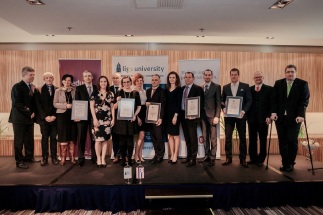MBA │ LIGS UNIVERSITY
Precisely target your career by obtaining the LIGS University MBA
Our MBA program provides new knowledge and experience for the 21st century and beyond. Study individually from anywhere, anytime, on any device. Complement your skills and experience with new actionable next generation knowledge, and expertise from 12 pace-setting three-credit courses. The LIGS University MBA will open and challenge your mind. It will open doors to the highest levels of business.
What will you study?
6 COMMON BASE COURSES
5 SPECIALIZATION COURSES
CAPSTONE PROJECT
Tuition
$ 7,164
$199 Per Credit Unit
Payment Plans and Scholarships Available
About the MBA Degree
Our MBA is an efficient and flexible managerial program that is suited for learners that have busy schedules and work in middle and senior management positions. The program is offered exclusively online and uses the latest practices of professional education and communication technologies. Thanks to our unique learning platform learners can study anytime, anywhere and from any computer connected to the internet. Our program is 100% remote.
A Degree that Transcends
Earning your MBA from LIGS University isn't just about gaining credits; it's about gaining a competitive advantage. The program revolves around skillsets that matter and that help you stand out as a qualified candidate for any company you apply to. As you advance through the curriculum, you're not just learning theories; you're translating them into tangible, real-world management practices.
Leadership Redefined
Our MBA program doesn't just focus on curriculum; it's about cultivating leadership. With specialized elective courses, we empower you to delve into leadership dynamics, enhancing your ability to steer teams, make critical decisions, and set new directions for your organization. These skills transcend industries and positions, making you a sought-after leader
Main benefits of studying in our MBA program
You will gain skills in communication, teamwork, data analysis and data-driven decision making.
The faculty will teach you to focus on your goals and develop your potential.
Studying in a flexible online format allows you to live and work while you earn your MBA.
Earn your MBA by gaining a minimum of 36 credits.
You will become a leader. Move further in your profession. Open new paths in business or career.
Specialized courses are designed to help you gain leadership and direction setting skills.
By being an MBA graduate, you will gain a competitive advantage in the job market.
What will you study?
Data-Driven Decision-Making and Planning
Analyze research and scholarly sources to make sound organizational decisions. The Data-Driven Decision-Making and Planning competency will guide you through the research process, which is vital to making firm leadership decisions and assisting with organizational performance. In today's fast-changing environment, research and scholarly writing are essential.
COMPETENCY OBJECTIVES:
- Develop viable research questions.
Discover relevant data and information related to the research questions.
Analyze qualitative and quantitative studies as they apply to research.
Synthesize data and information to answer the research questions and reach valid conclusions.
Digital and Global Marketing
This course will provide students with an understanding of the fundamental issues and approaches in global marketing and the use of digital media in those approaches. Students will develop a working knowledge of the worldwide marketing environment and the complex inter-relationships between different marketing elements in the international context. The focus is creating a logical and integrated approach for international marketing decisions, using modern digital methods, delivering customer value across multiple countries, and growing global businesses.
COMPETENCY OBJECTIVES:
By the end of the course, students will be able to:
- Analyze global marketing environments/contexts and develop effective marketing strategies.
Appreciate marketing similarities and differences across cultures at the country and sub-country levels.
Understand the impact of culture on marketing and business leadership.
Delineate different business opportunities and challenges in a global environment.
Understand current trends in digital marketing in a global context.
Explain the vernacular, functionality, and appropriate uses of common digital marketing tactics in individual and group settings.
Evaluate phenomena unique to digital marketing, including changes to consumer/firm interactions, the economics of digital marketplaces, and ethical
considerations in a global marketplace.
Create global marketing strategies incorporating digital media.
Ethical Leadership and Decision Making
This course explores ethical decision-making for self and organizations (personal/leadership). Various ethical issues you may face in groups, teams, organizations, and life in general are examined. You will review ethical theories, decision-making models, policy, governance, and values. You will learn about practices that help encourage ethical behavior and decision-making.
COMPETENCY OBJECTIVES:
- Examine theories and principles of ethics.
Distinguish values that guide ethical decision-making.
Evaluate ethical decision-making frameworks to make decisions.
Assess complex ethical issues in an organizational scenario
Globalization and Diversity
This competency examines leaders' roles, responsibilities, and influence in diverse and global organizations. In this competency, you will evaluate personal perspectives, assess barriers and biases that impact leadership and organizational success, and evaluate the importance of cultural intelligence and leadership effectiveness.
COMPETENCY OBJECTIVES:
- Upon successful mastery of this competency, you will be able to:
Examine diversity frameworks, and identify the benefits and challenges in diverse organizations.
Evaluate personal framework, strengths, and challenges of including diversity in organizations.
Assess barriers and biases that impact leadership and organizational success.
Evaluate the importance of cultural intelligence to leadership effectiveness.
FINC 505 – Global Financial Management
The primary goal of financial management is to maximize the wealth of the company's shareholders (owners) by causing the value of their company stock to increase. As a result, determining an asset's or liability's market value is a crucial element of finance. Valuation is the process of estimating what something is worth. Valuation is of critical importance when faced with investment and financing decisions.
This competency focuses on analyzing and evaluating a business's global financial performance using financial information from a company's annual report and related financial statements. You will analyze an organization's financial health and industry comparisons using benchmark organizations and techniques such as vertical/common-size analysis, horizontal/trend analysis, and ratio analysis. These accounting competencies enable you to synthesize the knowledge and skills of Fundamentals of Accounting, Accounting Cycle & Transaction Analysis, Financial Reporting, Accounting for Long-Term Investing and Financing Decisions, Accounting for Working Capital, Accounting for Managerial Decisions, and Financial Planning.
COMPETENCY OBJECTIVES:
- Upon successful mastery of this competency, you will be able to:
Analyze global financial systems and the goals of the firm.
Evaluate the relationship between risk and return.
Compare and contrast the cost of financing, capital structure, and dividends.
Demonstrate the capacity to make decisions to invest in long-term assets (Capital Budgeting Decisions)
Demonstrate comprehension of how to manage working capital.
Demonstrate the ability to apply the purpose and the five-step process of financial analysis:Evaluate a business's model and strategy;
Team Leadership and Collaboration
This competency will introduce students to the theories and practices of team leadership, skill development, group process, and the enhancement of cooperative climates. Students will learn the principles of effective team building, conflict mediation, collaborative learning, and collaboration based on theories of group process dynamics. Emphasis will be placed on the interpersonal development of leadership skills to enhance the development of teams and promote interpersonal learning to achieve educational goals and objectives.
COMPETENCY OBJECTIVES:
- Examine the impact of teaming on organizational performance.
Evaluate theories of team dynamics, team processes, and team building.
Examine strategies for leading teams through the stages of development.
Analyze the challenges of leading virtual teams across distance, time, and geographic locations.
Change Management
Evaluate theories and models that leaders implement to lead change effectively. Change is a constant condition that can be planned or occur without warning. In this competency, students will be confronted with the realities of change and given opportunities to apply change management strategies, and leadership approaches to authentic situations that mirror life. Planned change initiatives are ideal and often yield the best results, but sometimes, managing change stems from the unexpected.
COMPETENCY OBJECTIVES:
- Apply change management models to change initiative(s) within an organization.
Determine complexities associated with organizational change.
Hypothesize how changing leadership strategies will improve organizational operations.
Business Intelligence and Data Analytics
Demonstration of competency in transforming data into meaningful and valuable information to assist in business analysis and data reporting processes is essential for business. As an IT professional, the skills gained through applying Business Intelligence and Data Analytics processes are vital to more informed business decisions.
COMPETENCY OBJECTIVES:
- Upon successful mastery of this competency, you will be able to:
- Develop a plan for a Business Intelligence application.
Distinguish the foundational components of Business Intelligence concepts and principles.
Compare and contrast Business Intelligence systems such as knowledge management, decision support systems, Artificial Intelligence and Expert Systems.
Utilize data warehousing technologies, data virtualization applications, and the basics of data mining.
Prepare a business needs analysis for a Business Intelligence system.
Risk, Governance, and Compliance
This course focuses on the legal, regulatory, and ethical aspects of risk management and government compliance in various sectors and assists you in developing the skills and knowledge to comply with the laws, regulations, and standards that govern the operations of different organizations and industries. Students will analyze business survival planning methodologies for business disruption, including natural disasters; hardware and communications failures; internal or external sabotage or acts of terrorism; and the failures of supply chain and sales affiliate organizations. Competencies include risk identification and analysis, mitigation of business impact, and the generation of alternative recovery methods for the situation or crisis.
COMPETENCY OBJECTIVES:
- Upon completion of the course, the student will be able to:
- Identify, analyze, measure, and manage various risks, governance issues, and compliance.
Evaluate and optimize risk management strategies and decisions using quantitative and qualitative methods and tools.
Engage clearly and persuasively with stakeholders about compliance, risk management solutions, and the benefits of business continuity planning.
Examine the effect that risk has on a community, business organization, and employees.
Control risk and prepare for compliance issues and audits through the use of governance principles.
Detect business risks and recommend risk avoidance alternatives.
Formulate leadership, teamwork, creativity, and critical thinking in solving complex compliance and risk management problems.
Sustainability, Business, and Corporate Social Responsibility
This course identifies opportunities to create business value by management of environmental and sustainability issues. Using benefit-cost analysis, risk analysis,and return on investment (ROI) – how should assets be measured in a business? How to sustain supplies of energy, water, and other critical resources? What are the impacts of climate change on all enterprises? A model for a sustainable business? We will examine our progress and how we can find business opportunities and sustainability. You will also have the option to prepare for certification as a sustainability professional.
COMPETENCY OBJECTIVES:
- Upon completion of the course, the student will:
- Discuss the impact on the sustainability of energy, water, and other critical resources.
Apply the concepts of life-cycle analysis (LCA), carbon footprint, water footprint, and other environmental metrics.
Create a sustainable business model. Evaluate business opportunities to improve long-term return on investments.
Assess major current laws and regulations and their impacts.
Obtain professional certification as a sustainability expert.
Strategic Project Management
Strategic project management is managing complex project outcomes through a combination of business strategy and project management techniques that align the project to the organizational mission. In this competency, you will learn how to support your organization's business strategy with traditional time, budget, and performance metrics and an expanded approach as a strategic management tool.
COMPETENCY OBJECTIVES:
- Determine the project fit within the strategic mission of the organization.
Construct a SOW (Scope of Work) and project schedule.
Assess and perform a project risk analysis.
Develop project controls and reports.
MBA Organizational Leadership Capstone
In this competency, students will analyze business and leadership concepts and theories. Using this acquired knowledge, students will apply learnings to current professional and personal case scenarios. Students will use business and leadership knowledge gained through the course to create action plans and recommendations for an organizational challenge, resulting in a comprehensive, integrated final paper.
COMPETENCY OBJECTIVES:
- Assess the implications of Finance, Marketing, Business Intelligence & Data Analytics, Risk, Governance and Compliance, Sustainability and Corporate Social Responsibility, data-driven Decision making & Planning, leadership theory, ethics, diversity, team leadership, and change
management on a complex organizational issue.
Apply leadership strategies, including a personal definition of the business professional, to resolve a significant organizational challenge.

Admission Requirements:
- Bachelor's degree
- Documents (electronic form): Copy of a document proving the highest degree earned + transcript of records, CV, Photo, Government issued ID
- The Office of the Vice Provost will only consider fully completed applications for enrollment.
Are you ready to enroll at LIGS University and take the next step?
Online MBA
We are LIGS University
Reach out to us
Still have questions? Book an appointment to speak with one of our application specialists.












